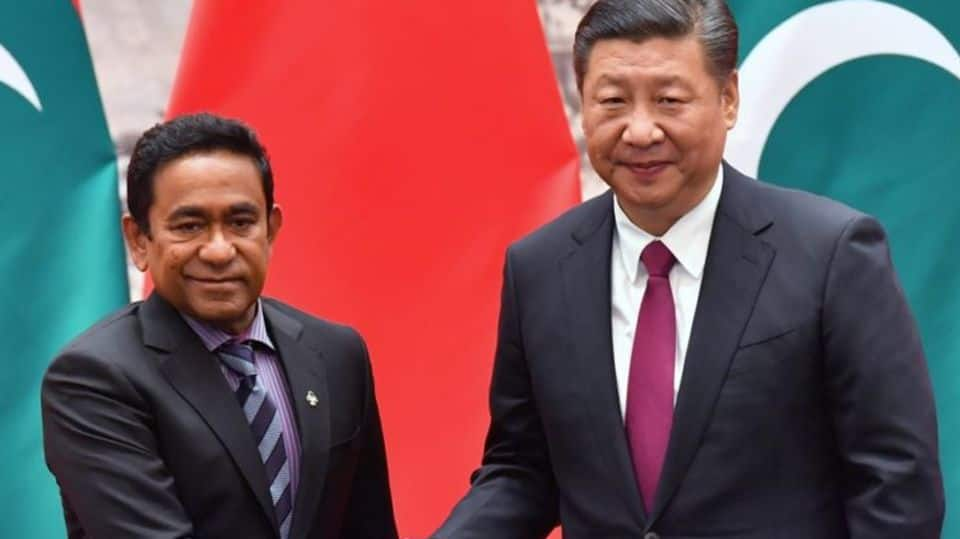
Growing closeness between Maldives and China worries India
What's the story
Apart from being engulfed in political turmoil, Maldives has now become the latest linchpin in India-China's tussle for regional leadership.
India is urging Maldivian president Abdullah Yameen to address the political chaos, which intensified after the imposition of emergency.
Meanwhile, Yameen made overtures to China; and the latter's footprint in Maldives is a serious concern for India.
So, why is India disturbed? We elaborate.
Political crisis
What is the current crisis in Maldives?
Since Yameen came to power in 2013, the rule of law in Maldives has been deteriorating steadily.
It declined further after Yameen refused to follow-up on an SC order that quashed the apparently "fabricated" convictions of nine opposition members on terrorism charges, including former president Mohamed Nasheed.
Instead, he declared an emergency and jailed one of the SC judges and the chief justice.
India-Maldives
A background about India-Maldives relations
Maldives is about 700 km from India's Lakshadweep Islands. The two countries also share ethnic, linguistic, cultural, religious and commercial links. This proximity has made the countries strong allies.
Further, India has offered assistance to Maldives whenever required. During the 2004 tsunami, India promptly sent relief aid. Also, in 2014, India dispatched "water aid" after Maldives's biggest water treatment plant was damaged.
China-Maldives
Now, how has China increased engagement with Maldives?
However, recently, Male-Beijing's ties have expanded rapidly. They finalized a free trade agreement (FTA) within 3 years.
Soon after, China began mega-projects like the Friendship Bridge and Laamu Atoll Link Road.
Further, reciprocal visits by leaders Xi Jinping and Yameen boosted ties.
What's more, Maldives also became a member of China's One-Belt-One-Road Initiative.
Incidentally, China's growing investments/inducements might push Maldives into a debt trap.
India's concerns
Why is it a matter of concern for India?
Maldives lies in India's backyard and its position, atop critical sea lanes of communication (SLOCs), in the Indian Ocean is geo-strategically important.
The growing trade/investment allows China unhindered access, like in August'16, three Chinese naval-warships docked in Male harbour for a "goodwill visit."
Moreover, after Yameen's emergency-declaration, in a veiled reference to India, China warned that no country should intervene in Maldives's internal matters.
India's options
Now, what are the options before India?
Maldivian opposition leaders, including Nasheed, have sought India's help, including military intervention.
However, considering the unreliability of a military solution, strategic affairs expert Brahma Chellany says India's best option is to threaten military action with economic sanctions that cut Yameen's financial support from Maldivian elites. The elite own luxury resorts, with Indians as the major clientele. This might force Yameen to bend his knees.
India-China
Separately, is Maldives the new irritant in India-China relations?
Reportedly, China's support might have emboldened Yameen to push towards authoritarianism.
However, if India is unable to settle the Maldives issue in its favor, i.e., get it to return to democratic normalcy, its credibility in the eyes of its smaller neighbors will get affected.
South/South-east Asian nations might question India's prowess against China.
Maldives could become the latest thorn in India-China's power struggle.